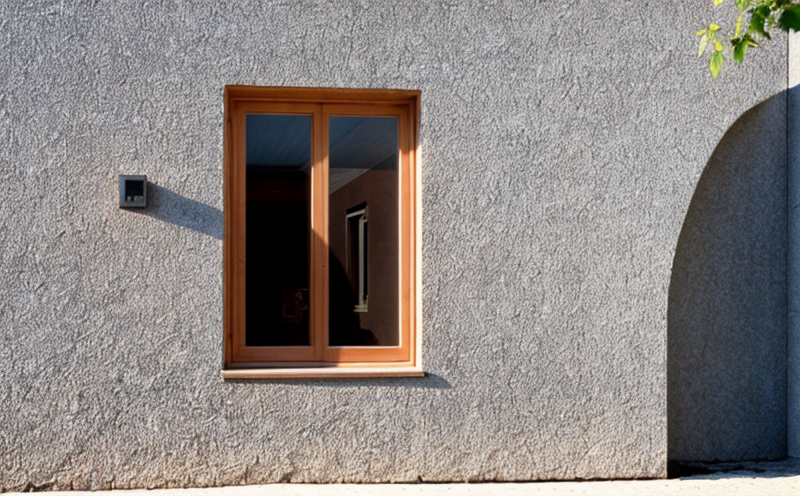Notch sensitivity analysis
Unlocking Material Performance The Power of Notch Sensitivity Analysis
In the world of materials science and engineering, understanding the behavior of materials under various loads is crucial for designing safe, efficient, and reliable products. One critical aspect of material performance is notch sensitivity analysis, a laboratory service that helps businesses unlock the full potential of their materials. At Eurolab, we specialize in providing comprehensive Notch sensitivity analysis services to industries worldwide, helping them make informed decisions about material selection, product design, and quality control.
What is Notch Sensitivity Analysis?
Notch sensitivity analysis involves testing a materials susceptibility to cracking or failure under various notch geometries. A notch is an intentional cut or notch in the material that mimics real-world defects or flaws, such as scratches, dents, or manufacturing imperfections. By subjecting a material to different notch configurations and loads, Notch sensitivity analysis reveals its inherent weaknesses and potential failure modes.
Why is Notch Sensitivity Analysis Essential for Businesses?
The advantages of using Notch sensitivity analysis are numerous, and businesses across various industries can benefit from this critical service
Benefits of Notch Sensitivity Analysis
Improved Material Selection By understanding a materials notch sensitivity, you can select the most suitable materials for your specific application, reducing the risk of costly failures and rework.
Enhanced Product Design With accurate data on notch sensitivity, you can design products with optimized geometry, minimizing stress concentrations and increasing overall product reliability.
Increased Efficiency Notch sensitivity analysis helps you identify potential weak points in your production process, enabling you to implement targeted improvements and reduce material waste.
Compliance with Industry Standards Many industries require materials testing and certification for compliance. Notch sensitivity analysis ensures that your products meet regulatory requirements and standards.
Reduced Risk of Failure By understanding a materials notch sensitivity, you can predict potential failure modes and take proactive measures to prevent costly accidents or equipment downtime.
How Notch Sensitivity Analysis Works
Our expert team at Eurolab conducts comprehensive notch sensitivity analysis using advanced testing equipment and techniques. The process involves
Material selection and preparation
Notch creation (using various geometries and sizes)
Load application (tension, compression, or bending)
Data collection and analysis
Applications of Notch Sensitivity Analysis
Notch sensitivity analysis has a wide range of applications across industries, including
Aerospace and Defense Ensure the reliability and safety of critical components and systems.
Automotive Optimize material selection for improved fuel efficiency and reduced emissions.
Energy Assess the notch sensitivity of materials used in power generation and transmission infrastructure.
Healthcare Develop implantable devices with enhanced durability and performance.
Real-World Examples
A leading aerospace manufacturer uses Notch sensitivity analysis to optimize the design of critical engine components, reducing weight and improving fuel efficiency.
An automotive company employs notch sensitivity analysis to select materials for a new generation of electric vehicles, ensuring exceptional range and performance.
A medical device manufacturer relies on Eurolabs expertise in notch sensitivity analysis to develop implantable devices with unparalleled durability and biocompatibility.
Frequently Asked Questions (FAQs)
Q What is the difference between Notch Sensitivity Analysis and other material testing services?
A Notch sensitivity analysis specifically focuses on a materials response to notches, simulating real-world defects or flaws. Other material testing services may provide general mechanical properties, but notch sensitivity analysis offers unique insights into a materials behavior under specific conditions.
Q How long does the Notch Sensitivity Analysis process take?
A The duration of the process depends on the type and quantity of samples, as well as the complexity of the notch configurations. Typically, our experts can complete a Notch sensitivity analysis within 2-6 weeks, depending on your specific needs.
Q Can I perform Notch Sensitivity Analysis in-house?
A While its technically possible to conduct notch sensitivity analysis in-house, our team at Eurolab has the necessary expertise and equipment to ensure accurate and reliable results. Our laboratory is equipped with state-of-the-art testing facilities, guaranteeing high-quality data that meets or exceeds industry standards.
Q How do I prepare my materials for Notch Sensitivity Analysis?
A Our experienced team will guide you through the material preparation process, ensuring that your samples are properly selected and prepared for testing. Simply contact us to discuss your specific requirements and needs.
Conclusion
In todays competitive business landscape, understanding material behavior is crucial for success. Notch sensitivity analysis provides a powerful tool for businesses to make informed decisions about material selection, product design, and quality control. At Eurolab, we are committed to delivering exceptional laboratory services that meet the unique needs of each client. Trust our expertise in notch sensitivity analysis to unlock the full potential of your materials and drive business success.
Join us at Eurolab for unparalleled Notch sensitivity analysis services that will elevate your product development and manufacturing processes to new heights!




